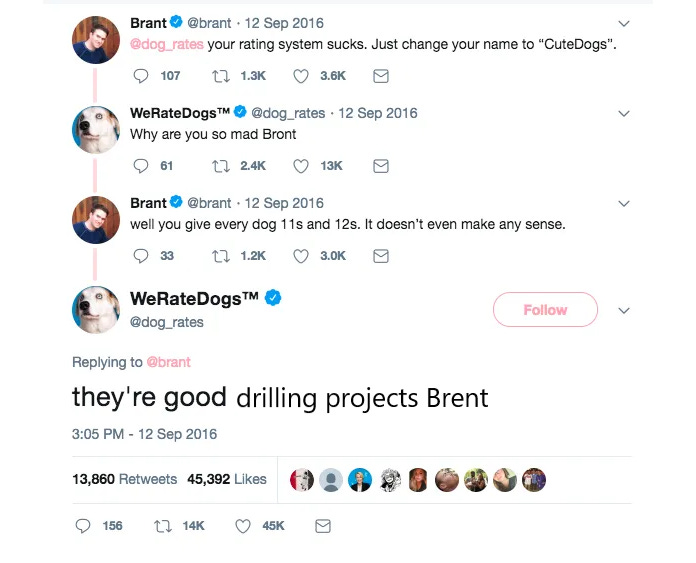When the stocks you love don’t love you back, Vermillion Energy $VET edition.
For never was a story of worse fate, than this of Vermillion and her degenerate.
Hey ChatGPT, please dunk on Vermillion Energy in the style of Shakespeare’s Sonnets 88-90.
Sonnet 88
When Vermilion’s shares do fall from their great height,
And in despair, you turn away in scorn,
I'll stand with faith, defending day and night,
Its hidden worth, though losses leave us torn.
Though taxes come from Ireland's heavy hand,
And dividends fall short of promised gain,
I’ll brace myself and with conviction stand,
For in my heart, its future I sustain.
In every drop, my loyalty I'll prove,
Though buybacks lack and fortune's favor fades,
Each downturn strengthens this unyielding love,
Enduring still through all these taxing shades.
So in this plight, my faith shall never sway,
For Vermilion's rise, I'll patiently stay.
Sonnet 89
If thou should leave and call it a poor stake,
I'll bear thy scorn and champion the blame,
For every fault, my heart will gladly ache,
Defending still Vermilion's noble name.
When taxes bite and profits seem to wane,
And dividends to shareholders are few,
I'll take the pain and still will hold it dear,
Believing still its dawn will come anew.
Forsake me not, though times are harsh and cold,
Though buybacks fail to lift our weary hearts,
For in the end, the stock will soon unfold,
Its hidden strength to overcome these parts.
So here I stand, through taxes and through tears,
My faith in Vermilion transcends all fears.
Sonnet 90
Then doubt me when you will; if doubt, do now;
Now, while the market’s winds do harshly blow,
Join with the spite of fortune, make me bow,
And do not wait for other woes to show.
Ah, do not, when these losses we’ve endured,
Bring forth new doubts in times of fleeting gain,
Give not a fleeting night a storm ensured,
To stretch out sorrows in an endless chain.
If you must leave, then leave me at this time,
When other griefs have dealt their heaviest blow,
But in this darkest hour, keep hope in mind,
For brighter days Vermilion soon shall know.
For if I lose thee now, amidst this test,
The loss of thee would be my deepest rest.
Vermilion Energy (VET) is a Canadian domiciled oil and gas exploration and production company. Strike One. The founders have moved on to other endeavors, and the company is operated by what James Burnham in “The Managerial Revolution (1941)” referred to as the managerial class. Strike Two. And unlike their peers, are reluctant to aggressively return capital to shareholders. Strike Three. Ok, so why do I love this garbage? I love this garbage because they are a literal monopoly natural gas producer in Ireland.
See how 37% of their production is responsible for 57% of their funds from operation? The natural gas monopoly in Ireland is roughly 20% of their production and 40% of their profits. How much abuse from management am I willing to tolerate in order to be a monopolist? Probably too much.
I am exaggerating a bit, pardon my enthusiasm, VET owns 56% (The Canada Pension Plan Investment Board owns the rest) of the only domestic natural gas source in Ireland which currently supplies 20% of Irish gas needs, there is a pipeline from the UK supplying the rest. But have I mentioned that natural gas is expensive in Europe since the start of the Ukraine War?
Europeans are paying $10 for what sells in the US for $3. Now it is true, LNG carriers are being built, and export terminals are being built, but this wedge will collapse neither quickly nor completely. And in the meantime, VET is gushing a river of cash. Also, it’s nice to have the government defend your monopoly:
What politicians give with one hand, they take away with the other. After the start of the Ukraine War, the European Union implemented a windfall profits tax and the government of Ireland retroactively ripped away hundreds of millions of dollars from VET. That windfall profits tax expired this past December, and since then, the EU has recommended against further windfall profits taxes, but of course the risk remains. Emerging market risk in developed markets, maybe I should give Ecopetrol and Petrobras another look instead?
The big anchor dragging down the stock price of VET is their capital allocation strategy. The CEO, Dion Hatcher, is a petroleum engineer, and he can’t stop won’t stop drilling. VET recently reached their debt repayment target of $1 billion of debt remaining, and has started to return a greater percentage of capital to shareholders, up from 25% to 50% of “EFCF,” but not FCF. Their constructed “Excess” Free Cash Flow metric is the cash flow left over after the CEO spends as much as he wants drilling for more gas. Rude. Pretending to make a commitment and trying to fool us with a parlor trick really shows just how little professional managers think of the intelligence of their shareholders.
I don’t even think the growth projects are bad; there are huge opportunities in drilling for natural gas in Germany, Croatia, and the Montney formation is a wonderful resource for Canada, but the disrespect is a little much. Management should have a capex policy more sophisticated than the rating system of “WeRateDogs.”
Dion Hatcher allocating capital: They’re good drilling projects Brent.
The crumbs from the master’s table have resulted in a 12 million share count reduction since 2022 with 158.9 million shares remaining. Not terrible, but not close to their peers who trade at a much higher multiple. Even though they say they reached their debt paydown target of $1 billion of debt remaining, VET is still paying down debt in 2024. On conference calls they said that there was about $500 million of low interest rate debt that didn’t make sense to repay early, but filings show $300 million at 5.625% and $400 million at 6.875%. So it’s a little up in the air how much debt management wants to repay.
This debt paydown when finished, would allow for more cashflow to be returned to shareholders, unless of course they find an acquisition they really liked in order to increase the debt again. I’m not against VET doing an accretive acquisition, my point is that debt paydown is not returning capital to shareholders. This means the real increase in return of capital to shareholders starts in 2025, despite having been promised in 2024, unless management drives up debt because they find something juicy to buy first. I’m not even against debt, I enjoy levered returns, and I predict sustained inflation to whittle away at the real repayment burden.
In 2023 VET had $1 billion of operating cashflow, but between capex and an acquisition, they managed to flip net income into the negatives for the year and goose all the quantitatively driven strategies. Some of this effect should reverse after showing positive net income for 2024. I would, quite honestly, be impressed if management could figure out how to show negative income from their projected $1.3 billion 2024 operating cashflow.
I’m being a little too harsh on VET, not that they don’t deserve it. Their $625 million projected 2024 exploration and development capex is high, and it is not my preferred capital allocation strategy. In a previous post I mentioned how I disagree with the chorus who insist only on share buybacks, I am a proponent instead of acquisitions over organic growth. Organic growth in the face of political risk from environmental populism is not prudent. Focusing on acquisitions instead would allow management to scratch their growth itch, while at the same time, not flooding the market with new production in a world where you are actively hated by your own government. But alas, I don’t have Dion Hatcher’s ear, and petroleum engineers cannot conceive of a world where they drill with a bit more restraint.
I do believe my patience will ultimately be rewarded as VET ramps up their share buyback programs which have started out at a medium pace and are supposed to accelerate into 2025. We have had two incredibly warm winters in a row, and despite that, VET gushed $1 billion in cash in 2023 while still under Ireland’s excess profits tax, not bad for a $1.7 billion market cap company. One by one, the growth projects in Germany, Croatia, and the Montney, etc. will come online and increase production. And after the recent European elections, the leftist stranglehold on Europe which disproportionately empowered the Green party should diminish. Pivoting toward natural gas extraction in Europe could well prove to be the winning contrarian strategy of the decade. The Montney isn’t contrarian though, that’s just lemming behavior.
VET could easily 3x to 6x from here in a few short years. The biggest risk is VET being acquired at a price far below what they should trade at due to misaligned incentives of independent directors. The danger of hostile takeover would be a lot less if management actually returned a more appropriate amount of capital to shareholders relative to their peers, drilled a bit more slowly, and got their stock price out of the dumpster by managing earnings and not showing GAAP negative profits. I have heard opinions that VET is a bad acquisition target because their assets are too scattered and too small. That may be true, but not at any price, and at a market cap of $1.7 billion, VET is too cheap for me to ignore, which means they might be too cheap for an acquirer to ignore.








